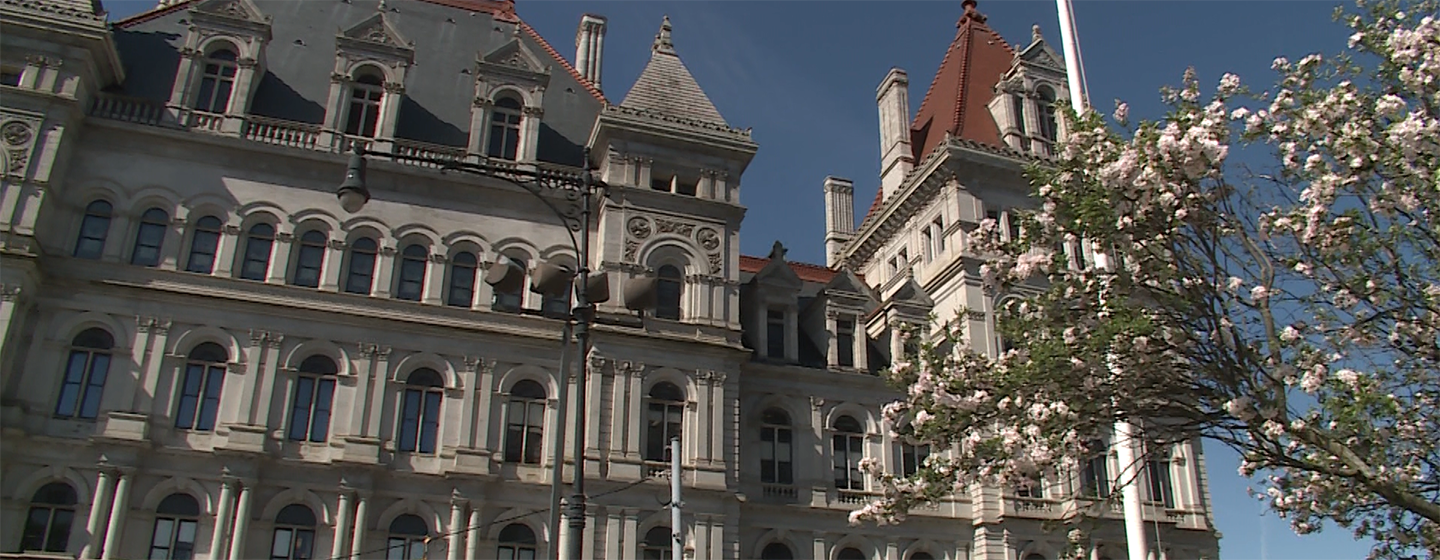NY HERO Act Signed Into Law, Will Mandate New Workplace Protections After COVID-19

NY HERO Act Signed Into Law, Chapter Amendment Coming
Businesses in New York will soon be required to follow minimum standards developed by the state to protect workers from the spread of airborne, infectious diseases under legislation signed Wednesday night by Gov. Andrew Cuomo.
But Cuomo’s approval of the new law came with a caveat — businesses will be allowed to correct violations of the new standards to avoid litigation from their workers.
Lawmakers will now have to approve an amendment to the new law to comply with the change. That’s expected to be taken up by the state Legislature in the coming days. Otherwise, the law will take effect on a timeline to be developed by the state.
“I have secured an agreement with the Legislature to make technical changes to the bill, including giving the department of labor and employers more specific instructions in developing and implementing the workplace standards,” Cuomo wrote in a memo approving the bill.
“And providing for an immediate requirement for employers to cure violations in order to better protect the safety of workers, and limit lengthy court litigation to those private rights of action, in limited circumstances where employers are acting in bad faith and failing to cure deficiencies.”
The new law, called the NY HERO Act, will require the state Department of Labor to develop and enforce minimum standards for businesses to follow when there’s risk of spreading an airborne, infectious disease in the workplace.
Those standards are expected to address several areas, from when face coverings would be required in the workplace to what kind of ventilation businesses will need going forward.
It was sponsored by Senate Deputy Majority Leader Michael Gianaris, D-Queens, and Assemblymember Karines Reyes, a Democrat from the Bronx. Reyes, who’s also a nurse, said her experience at work during the pandemic inspired the bill.
“I am honored to have sponsored the NY HERO Act that was borne out of my very own experiences serving as a nurse on the frontlines during the peak of the pandemic,” Reyes said. “It is crucial that workers are able to operate in a safe environment and have the full support of New York State.”
“Too many workers have already sacrificed their health for our community’s benefit,” Gianaris said. “The New York HERO Act will honor their efforts by giving workers the tools to protect themselves while on the job.”
The law, itself, doesn’t spell out what the standards will be for businesses. But the Department of Labor will be required, under the law, to consider different levels of potential exposure and the prevalence of a disease in crafting the new standards.
Companies with at least 10 employees will also be required to allow workers to form special oversight committees tasked with monitoring the implementation and maintenance of the new standards. That’s not mandated; it’s optional for employees
But if a business is found to have violated the new standards, they could face thousands of dollars in civil penalties — either from the state or through litigation brought by employees.
The new law allows the state to fine businesses $50 for each day they haven’t adopted a plan to prevent the spread of airborne, infectious diseases among their employees. That penalty goes up to $200 per day if there are multiple violations within six years.
Workers would also be allowed to bring their employers to court for violations of the new law, and could collect up to $20,000 in damages unless the judge finds a reasonable excuse for the company failing to comply with the standards.
It’s unclear, given the forthcoming amendment, when workers would be allowed to sue their employers over violations. Based on Cuomo’s memo, litigation would only be possible for the most egregious violations borne from negligence.
The law was particularly important to groups representing immigrants, who don’t always have equal access to workplace protections. The new law mandates businesses to provide the same protections for all workers, regardless of immigration status.
“The state’s essential workers, including many immigrant New Yorkers, continue to put their lives on the line for us all, and they have now been afforded the safety measures and protections they have long deserved, regardless of immigration status,” said Eddie Taveras, New York State Immigration Director at FWD.US, an advocacy group.
Business groups have been opposed to the new law, saying it will place a new mandate on employers who’ve already struggled to make it through the pandemic.
Greg Biryla, New York state director of the National Federation of Independent Business, said recently that business groups weren’t consulted on the new law, and that lawmakers ignored the impact it will have on small employers.
“Contrary to what proponents have been highlighting, this bill will have an outsized impact on small businesses who are hanging by threads because of the pandemic and resulting economic conditions,” Biryla said.
Related
There will be a chapter amendment for the NY HERO Act, Cuomo says: pic.twitter.com/YcVYq7eowa
— Dan Clark (@DanClarkReports) May 6, 2021
Assemblymember Karines Reyes discusses the NY HERO Act.
Answering viewer questions about workplace safety during the pandemic


